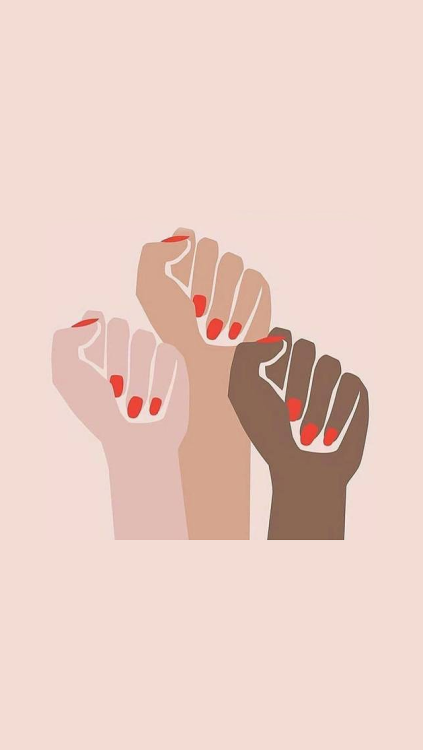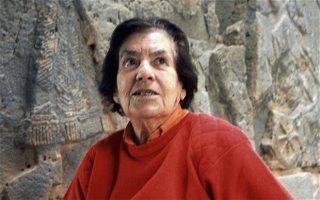Documenting powerful stories of Muslim women’s involvement in the growth and understanding of the world is a duty that we owe to the inspiring legacy of these women. It is essential to spread more success stories of Muslim women to not only end misconceptions and damaging stereotypes but to reinforce the truth that Muslim women have the unfettered freedom to be whoever they want to be. This month, Time Magazine announced the Next 100 leaders to watch in the world, amongst which are these three powerful Muslim women.
Sumayya Vally

“I believe that forces of representation and difference – being a woman, being Muslim, being African, and so many other factors that the young people I work with and teach, are strengths that allow us to see and think differently,”
– Sumayya Vally
Sumaya Vally, who is designing this year’s Serpentine pavilion, is the principal of Johannesburg-based architecture studio Counterspace. Studying architecture in her native South Africa, Sumayya Vally and her fellow students were regularly told that anything they could imagine had already been done. The subtext was clear: architecture belonged to the West; all they could hope to do was build upon it. Sumayya didn’t buy it. To her, the rarefied world of architecture had long ignored the African experience. “There is so much that has been taken away from us or erased or ravaged on the continent,” she says. “In looking at these other ways of being, there is so much design waiting to happen.”
Five years ago, she launched her own studio, Counterspace, in Johannesburg, to develop a design language that acknowledges and celebrates the African continent. Her work, centred on gathering spaces large and small, struck a chord. In 2019, she became the youngest architect ever to receive one of her industry’s biggest accolades: a commission for London’s 2020/20+1 Serpentine Pavilion. The recognition, she says, “means that things are shifting and changing, not just for me and my voice, but for the generation behind me.” Now a teacher herself, she tells her own students that there is another architecture canon—it’s just up to them to dream it. This month, she made the list of TIME Magazine’s 2021 Next 100 Leaders of the Future
Sarah Al Amiri

“Seeing everybody’s personal abilities grow has been tremendously fulfilling”
– Sarah Al Amiri
Sarah Al Amiri is the Minister of State for Advanced Technology and chairwoman of the UAE Space Agency. When Sarah al-Amiri was a child growing up in Abu Dhabi, she had a unique fascination for space. At the time, her young country seemed light years away from reaching for the stars, but Sarah continued to pursue her dream. Now the 34-year-old is a government minister and the driving force behind the United Arab Emirates (UAE)’s project; the “Hope” spacecraft which went into orbit around the Red Planet on February 9. Sarah Al Amiri was the project’s lead scientist who led a team that was 80% women.
Sarah serves as a global emissary for the UAE and its rapidly developing science and tech sector. The space agency she chairs was the fifth to ever reach Mars’ orbit. (China joined the ultra-exclusive club, which also includes the U.S. and India, soon after the UAE on Feb. 10.) Sarah Al Amiri has said that the Hope spacecraft’s success was an indicator of all that the UAE aspires to accomplish in the next 50 years, as the country continues to diversify its economy and build upon its technological prowess. This month, she made the list of TIME Magazine’s 2021 Next 100 Leaders of the Future
Nadeen Ashraf

“I am just one version of a Muslim woman, and people don’t get to see a lot of my kind”
– Nadeen Ashraf
Nadeen is a philosophy student who believes in social media as a tool for change. She is passionate about spreading knowledge in a way that’s accessible to the general population.
Ten years ago, when Egypt rose up and forced the ouster of longtime dictator Hosni Mubarak, Nadeen Ashraf was just 12 years old. Now, she is at the forefront of what is possibly another revolution, leading a generation of women rising up against sexual assault in Egypt.
Growing up, Nadeen found that women did not report rape or sexual assault. They were too ashamed and feared that the police would either not believe them or would blame them.
Now, “Assault Police”, an Instagram account that Nadeen founded in July 2020 has become the platform for hundreds of survivors to speak out about sexual violence at home, at work and in social circles. It is the first of its kind in Egypt. The unprecedented outpouring has forced Egypt to pass a law to protect victims’ identities. But more than that, the women Nadeen has inspired to find their voice are pushing towards a long-overdue reckoning. For her activism, Nadine was included on the list of TIME Magazine’s 2021 Next 100 Leaders of the Future. Long live the voices of Muslim women!
Reference: https://time.com/collection/time100-next-2021/
Have anything to talk or rant about? ‘The Muslim Women Times’ is looking to expand the voices of Muslim women on issues affecting Muslim women. Send pitches or contributions to contribute@themuslimwomentimes.com along with your bio, social media handles and your favourite headshot. Read More on our Contributions Page.




